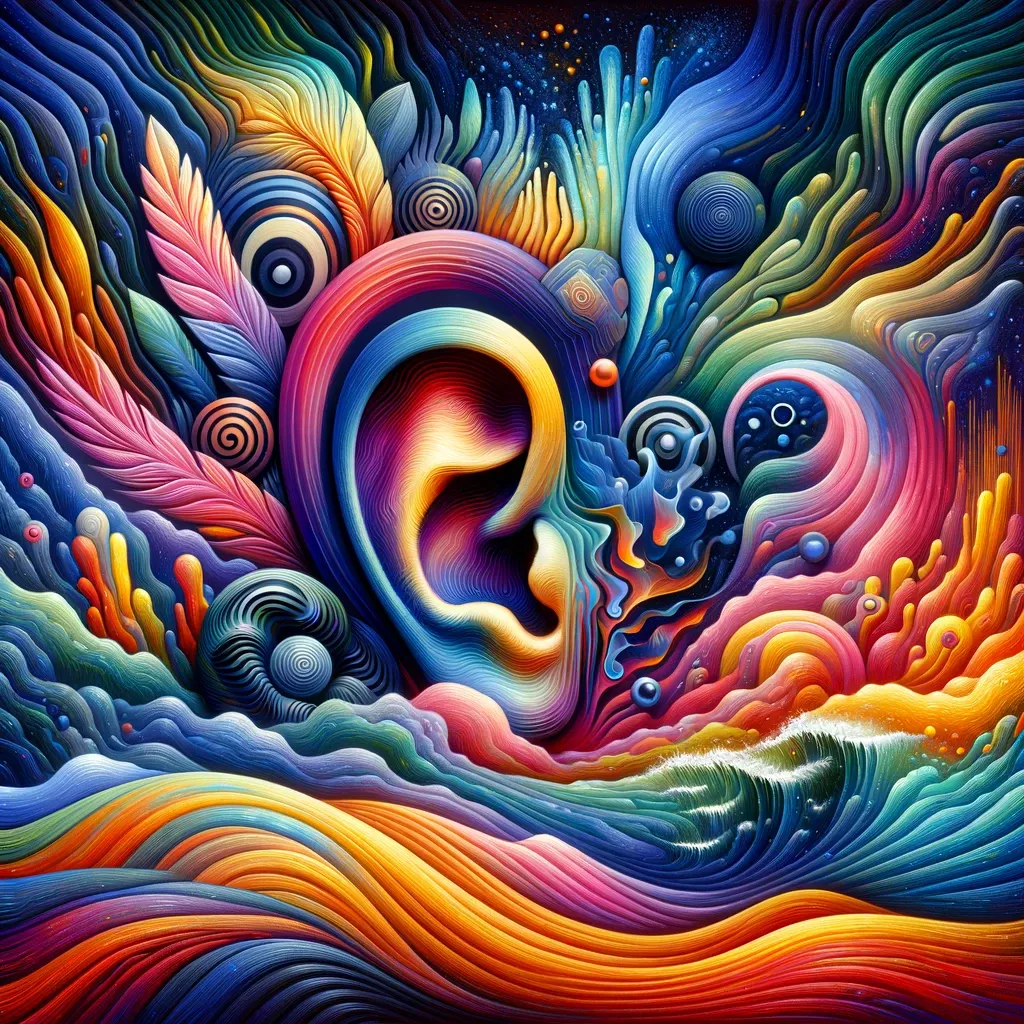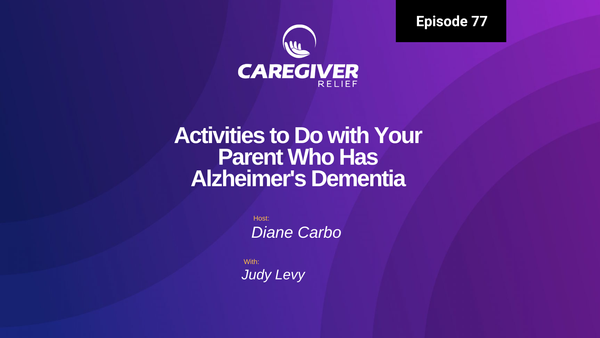How To Tell If You Are Hallucinating?
Hallucinations involve sensing things that aren't real, affecting 5-25% of people. They can impact any sense and vary in frequency. Understanding and distinguishing hallucinations from reality is crucial for mental health.

What are hallucinations?
Hallucinations can be a terrifying and confusing experience. They are more common than people may think, with up to 5-25% of people in the general population reporting experiences of hallucinations. It is important to understand what hallucinations are, how they can affect mental health and how to distinguish between a hallucination and reality.
Hallucinations occur when a person perceives something that is not real. These perceptions may involve any of the senses, such as: seeing objects or people, hearing voices or sounds, smelling odors, tasting flavors, or feeling tactile sensations. While some people may only experience these sensations on rare occasions, for others, hallucinations can become a daily occurrence.
Hallucinations occur when a person perceives something that is not real. These perceptions may involve any of the senses, such as: seeing objects or people, hearing voices or sounds, smelling odors, tasting flavors, or feeling tactile sensations. While some people may only experience these sensations on rare occasions, for others, hallucinations can become a daily occurrence.
The relationship between hallucinations and mental health
It's essential to understand the relationship between mental health and hallucinations. While a hallucination in itself isn't necessarily an indicator of poor mental health, it can be a symptom of certain mental illnesses such as schizophrenia, depression, bipolar disorder, and anxiety. Sometimes hallucinations can be caused by drugs, alcohol, or medical conditions. It can also be a side effect of certain medications. Therefore, it's important to understand the potential causes of hallucinations and take steps to get help if needed.
This guide will provide an overview of hallucinations, how to recognize them, and what treatments are available. We'll cover the different types of hallucinations, their causes, and coping strategies to help manage them. Finally, we'll discuss treatment options that are available to help people who are struggling with hallucinations.
Overview of hallucinations
Hallucinations can be a frightening experience, especially if you do not understand why they are happening. It is important to be aware of what hallucinations are, and how they relate to mental health conditions.
Hallucinations are false sensory perceptions that occur without external stimulation. They often involve visions, hearing, and smells that are not actually there. Common types of hallucinations include hearing voices, seeing things that are not present in reality, and having unusual bodily sensations.
Mental health conditions can cause hallucinations. Some common conditions associated with hallucinations include schizophrenia, bipolar disorder, and post-traumatic stress disorder (PTSD). Hallucinations are also sometimes associated with substance abuse, including drugs and alcohol.
It is important to remember that not all people who experience hallucinations have a mental health condition. However, people who do have a mental health condition are more likely to experience hallucinations. If you are unsure about what might be causing your hallucinations, it is important to speak to a mental health professional. They will be able to provide the necessary support and treatment you need.
Hallucinations are experiences of something that isn’t really there. They can be seen, heard, smelled, felt, or even tasted. Hallucinations can be frightening and disorienting, but understanding why they happen and how to cope with them can help.
Hallucinations can be divided into three main categories: visual, auditory, and tactile/sensory

Visual hallucinations involve the person seeing something that isn’t actually there. This can be shapes, colors, people, animals, objects, or patterns. Visual hallucinations may sometimes appear to be realistic and life-like, and may seem to move with the person’s movements.
Auditory hallucinations involve hearing voices or sounds that don’t exist. These can be anything from a single voice talking to the person to multiple people talking at once. The voices may seem to be coming from an external source, such as a radio, or from within the person’s head.
Tactile/sensory hallucinations involve feeling something that isn’t real. These can involve a range of sensations, from feeling a presence in the room to feeling bugs crawling on the skin.
Causes of hallucinations
Hallucinations can be caused by a variety of conditions, including mental health issues such as schizophrenia, bipolar disorder, and depression, as well as drug use, sensory deprivation, and trauma. In some cases, the underlying cause of the hallucination remains unknown.
Hallucinations can be a distressing experience and for some, they can signal an underlying mental health issue. If you’re worried that you or someone you know is experiencing hallucinations, it is important to get a diagnosis from an experienced medical professional. In this section, we will explain the process for diagnosing hallucinations and how to best prepare.
Diagnosing hallucinations
The first step in diagnosing hallucinations is an initial assessment. A doctor or mental health professional will want to get an understanding of your current mental state as well as any past experiences you may have had with hallucinations. They will ask questions such as ‘how long have you been experiencing the hallucinations?’ and ‘what do the hallucinations feel like?’
The second step is a physical exam. The doctor may check your heart rate, blood pressure and temperature, as well as look into your eyes and ears. This will help determine if the hallucinations are caused by a physical illness or if the cause is more likely to be psychological.
The third step is a mental health evaluation. This involves completing tests such as memory ones and personality inventory. The doctor or mental health professional will also discuss any potential substance abuse as this could be a factor in the hallucinations.
Once all of these steps have been completed, the doctor or mental health expert will form their diagnosis and recommend appropriate treatment. The diagnosis may vary depending on the cause. For example, if the hallucinations are due to a mental health condition, the doctor may diagnose a specific disorder such as schizophrenia or bipolar disorder. However, if the cause is found to be physical, the doctor may diagnose epilepsy or a brain tumor.
It is important to remember that the process of diagnosing hallucinations can be long and complex. However, the doctor or mental health professional should be able to provide support and advice throughout the process. It is also a good idea to have a friend or family member with you who can provide moral support.
If you or someone you know is experiencing hallucinations, make sure to get professional help as soon as possible. Diagnosing hallucinations correctly is essential for finding the right treatment.
Hallucinations can be caused by a variety of factors. It is important to understand and identify the cause of these occurrences as it affects how best to treat them. Some potential causes include drugs, psychiatric conditions, trauma, or sleep deprivation.
Drugs: The use of some drugs can lead to hallucinogenic experiences, such as LSD, Psilocybin, MDMA, Ketamine, and Mescaline. These drugs can have powerful effects on the user and can cause hallucinations that are vivid, intense, and realistic.
Psychiatric Conditions: Certain psychiatric conditions can also cause hallucinations. These include schizophrenia, bipolar disorder, and substance-induced psychosis. People with these conditions may experience delusions, visual disturbances, and auditory hallucinations.
Trauma: Traumatic events can also result in hallucinations, most commonly through post-traumatic stress disorder (PTSD). People suffering from PTSD may experience flashbacks, nightmares, or vivid memories of traumatic events. This can lead to intrusive thoughts, nightmares, or auditory hallucinations.
Sleep Deprivation: Sleep deprivation can also lead to hallucinations. When a person is not getting enough sleep, it can lead to an altered state of consciousness. This can cause the person to have vivid dreams or dream-like experiences during waking hours. Sleep deprivation can also result in distorted sensory processing, which can cause hallucinations.
It is important to note that hallucinations can be caused by a variety of factors. It is important to identify the cause of the hallucinations in order to find the best treatment option. If you are concerned about your mental health, it is important to speak with a healthcare professional as soon as possible to get the help you need.
Strategies to cope with hallucinations

Hallucinations can be a very distressing experience, but there are some strategies that you can use to help cope with them. Relaxation techniques, mindfulness and other therapeutic techniques can be beneficial in learning to manage the effects of hallucinations.
Relaxation techniques involve using breathing exercises or visualization to bring your body and mind into a relaxed state. This can be done either in a structured way, such as through mindfulness meditation, or simply by taking a few moments in your day to focus on relaxing your body and mind.
Another strategy is mindfulness. Mindfulness involves slowing down and paying attention to the present moment without judging it. It is about being aware of your thoughts and feelings without attaching any emotional significance to them. Practising mindfulness on a regular basis can help you become more aware of your own thoughts and reactions, which may help you better manage any difficult feelings or sensations that come up when you are experiencing a hallucination.
Cognitive behavioural therapy (CBT) is another option that can be used to help manage hallucinations. CBT is based on the idea that our thoughts, feelings and behaviours all influence each other. The aim of CBT is to understand and challenge negative thought patterns that may be causing or exacerbating the hallucinations, and then to develop positive coping strategies to help you manage them.
It is also important to seek professional help if you are struggling with hallucinations. A mental health professional or psychiatrist can provide advice, medication and treatment to help manage symptoms of the condition.
Other self-care activities that can help with managing hallucinations include exercise, ensuring adequate sleep, eating a balanced diet and engaging in activities that you enjoy. Taking time to look after yourself and to connect with loved ones can also help to ease the distress associated with hallucinations.
You may find it helpful to keep a diary to record any experiences of hallucinations or note down any strategies that work for you. This can be useful for further tracking progress and seeing how your strategies are helping.
Making lifestyle changes can also help when managing hallucinations. Avoiding alcohol, caffeine and other drugs that can increase or worsen the effects of hallucinations can make a significant difference. Finding ways to manage stress, such as through yoga or mindfulness, can also be beneficial, as can attending support groups or talking to a counsellor or therapist about your experience.
Although hallucinations can be difficult to manage and frightening to experience, there are a range of strategies that can help you cope. With the right support and coping strategies, it is possible to learn to manage the effects of hallucinations and live a more meaningful life.
Hallucinations can be deeply disturbing and can make it difficult to live a normal life. But there is help available, and treatment options that can help you manage your hallucinations and move forward in your life.
Treating hallucinations
When it comes to treating hallucinations, there are various options available, ranging from medication to therapeutic approaches.
Let's start with medications. Regarding medications, antipsychotic drugs are most commonly used to reduce or stop hallucinations, while antidepressants are sometimes used to reduce anxiety-related hallucinations. It's important to talk to your doctor about what medications might work best for you. It's also important to note that these medications may take some time to start working, so it's essential to keep taking them until they start to have an effect.
Therapy is another important part of managing hallucinations. Cognitive Behavioral Therapy (CBT) is a type of therapy that focuses on helping you understand how your thoughts and behavior influence each other. CBT can help you learn how to better cope with and reduce your hallucinations. Other therapies, such as Dialectical Behavior Therapy (DBT) and Acceptance and Commitment Therapy (ACT) can also be useful in managing hallucinations. Additionally, mindfulness-based approaches can be very beneficial in learning how to better understand and manage your hallucinations.
It's important to know that treatment is available and that you don't have to face your hallucinations alone. Talking to a doctor or therapist can help you identify the best treatment approach for your particular situation. With the right treatment, you can learn how to manage your hallucinations and live a fuller, more meaningful life.
It is important to remember that although hallucinations can be frightening, they do not have to mean that something is seriously wrong. With the right help and support, people can learn to manage their symptoms and improve their quality of life.
FAQ: How to Tell If You Are Hallucinating
What are hallucinations?
Hallucinations are false perceptions or sensory experiences that seem real but are created by the brain without any external stimulus. These can involve any of the five senses: sight, sound, taste, smell, or touch.
Types of Hallucinations
- Auditory Hallucinations
- What are they? Hearing sounds, voices, or noises that aren't present.
- Examples: Hearing voices or animal calls.
- Associated Conditions: Schizophrenia, psychotic disorders, and sleep disorders.
- Visual Hallucinations
- What are they? Seeing things that aren't there, such as objects, shapes, or people.
- Examples: Charles Bonnet Syndrome, common in people with vision loss.
- Tactile Hallucinations
- What are they? Feeling sensations like insects crawling on the skin.
- Associated Conditions: Parkinson’s disease, brain cancer, or recreational drug use.
- Gustatory Hallucinations
- What are they? Experiencing tastes that aren’t present, often metallic or unusual.
- Common Causes: Epilepsy or neurological conditions.
- Olfactory Hallucinations
- What are they? Smelling things that aren’t present, such as burning or decaying odors.
- Proprioceptive Hallucinations
- What are they? False perceptions of body position or movement.
When Do Hallucinations Happen?
- Sleep-Related Hallucinations:
- Hypnagogic Hallucinations: Occur when falling asleep.
- Hypnopompic Hallucinations: Occur when waking up.
- Acute Medical Issues or Neurological Conditions:
- Examples: Alzheimer’s disease, Lewy body dementia, or brain cancer.
- Chronic Conditions:
- Conditions like bipolar disorder, schizophrenia spectrum disorders, or Parkinson’s disease.
- Drug or Chemical Triggers:
- Illegal Drugs and Alcohol: Recreational drugs and alcohol withdrawal can cause hallucinations.
- Medications: Dose-related side effects of some antipsychotic or other medications.
What Causes Hallucinations?
- Health Conditions: Mental health conditions like schizophrenia or psychotic disorders.
- Neurological Conditions: Alzheimer’s, Parkinson’s, or Lewy body dementia.
- Sensory Inputs: Impairment, such as vision or hearing loss.
- Substance Use: Recreational drugs, alcohol, or medications.
- Sleep Disorders: Sleep hallucinations caused by sleep deprivation or disorders.
- Acute Medical Issues: Infections, high fever, or brain-related illnesses.
How Can I Tell If I’m Hallucinating?
- Auditory Hallucinations:
- Are you hearing voices or sounds when there’s no external source?
- Visual Hallucinations:
- Are you seeing things others don’t?
- Physical Sensations:
- Are you feeling insects crawling or other tactile experiences without a source?
- Odd Tastes or Smells:
- Are you smelling or tasting unusual things that others don’t?
- Context Clues:
- Does this occur when falling asleep or waking up?
Who Is at Particular Risk?
- Elderly people, due to conditions like dementia or Parkinson’s.
- Those with chronic mental health conditions, such as schizophrenia or bipolar disorder.
- Individuals using illegal drugs or those on medications with dangerous side effects.
- People with acute medical issues, like infections or brain cancer.
What Should I Do If I Think I’m Hallucinating?
- Practical Advice:
- Keep a journal of experiences, noting triggers and times.
- Get more sleep if sleep deprivation might be a factor.
- Seek Medical Help:
- Consult a doctor for a physical exam to rule out underlying causes.
- Discuss your medical history, including medication or substance use.
- Treatment Options:
- Medications: Antipsychotic medication may be prescribed for mental health conditions.
- Therapy: Support groups or therapy for coping strategies.
When Should I Feel Nervous About Hallucinations?
- If hallucinations disrupt daily life or make you feel unsafe.
- If accompanied by other psychotic features, such as paranoia.
- If related to an acute health condition or mental illness, seek immediate care.
Can Hallucinations Be Treated?
Yes, treatment varies based on the cause:
- Psychotic Disorders: Managed with antipsychotics and therapy.
- Neurological Conditions: Addressed with appropriate medications and support.
- Substance-Related Hallucinations: Detox and rehabilitation.
- Sleep Disorders: Improving sleep hygiene and managing triggers.
How to Reduce the Risk of Hallucinations?
- Avoid recreational drugs and alcohol.
- Manage chronic health conditions proactively.
- Get enough sleep and reduce stress.
- Regularly review medications with a doctor to prevent dose-related issues.
You might also like this article:










